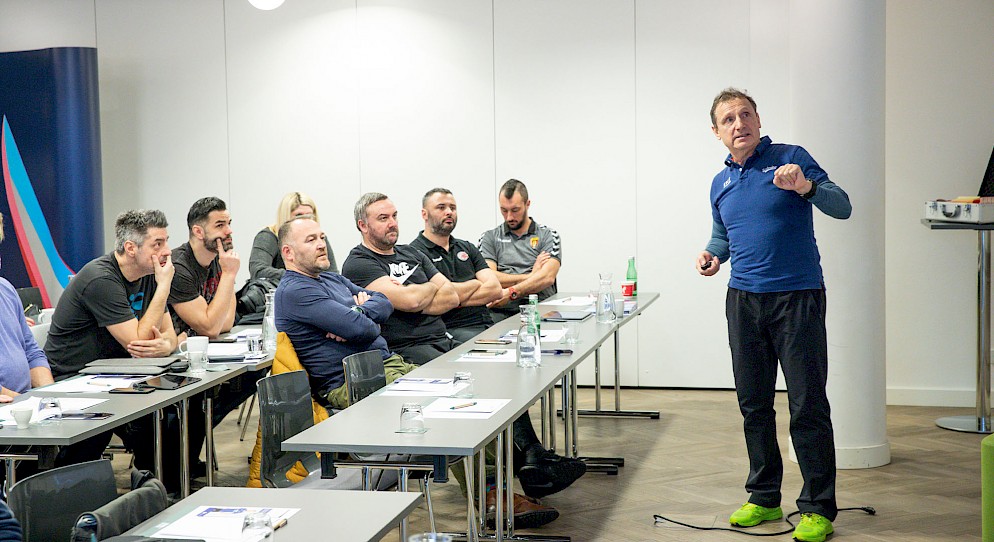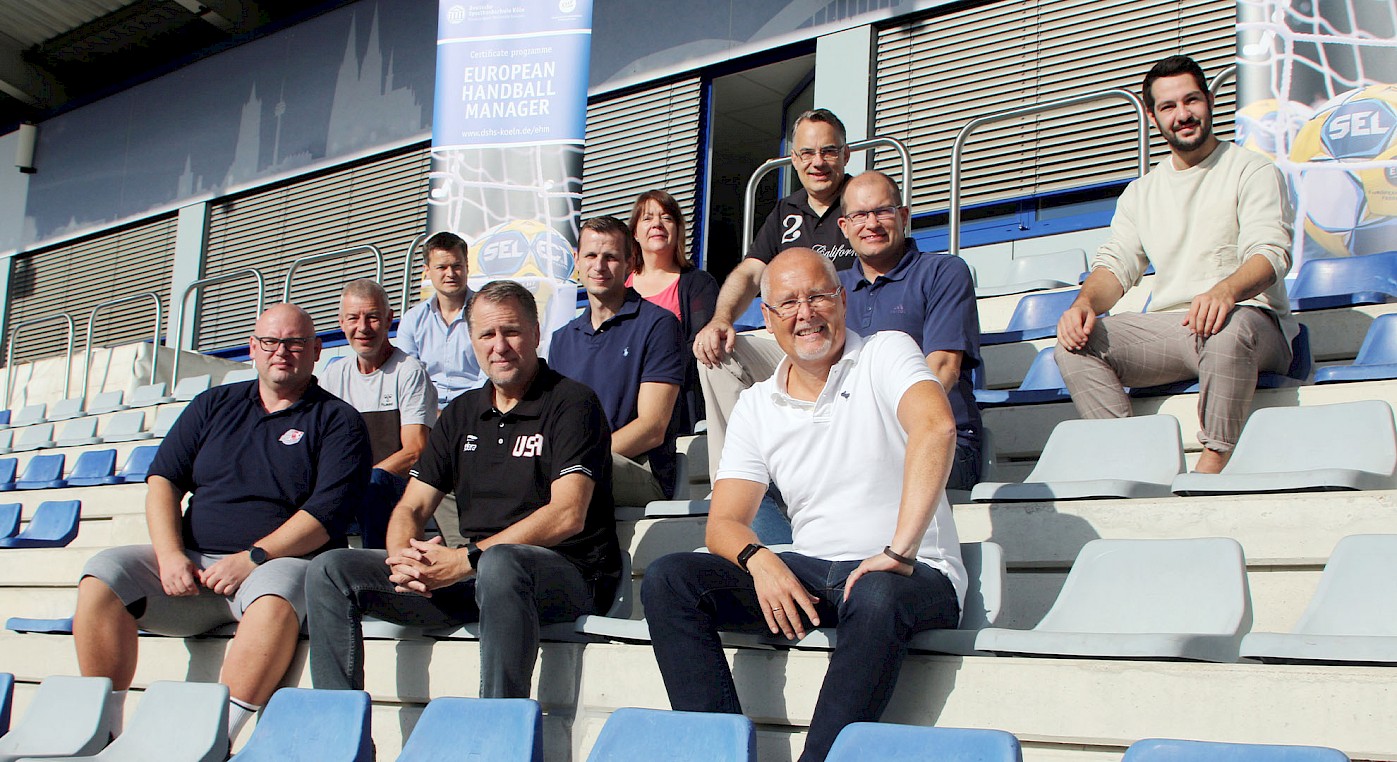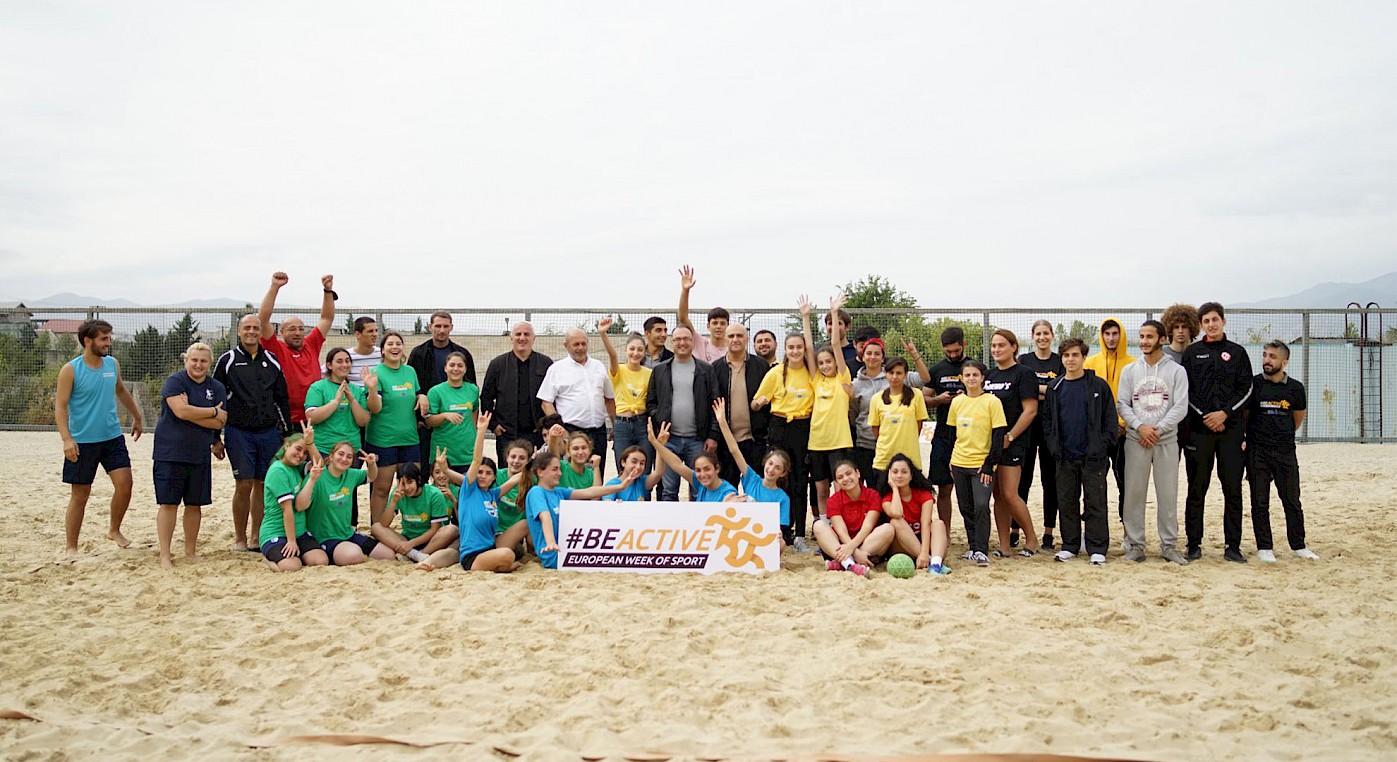Coaches’ education
Both the EHF Master Coach Course and post-graduate Master Coach course continued in 2020, with more students succeeding in graduating.
In February 2020, five EHF Master Coaches from five different countries – Finland, Iceland, Italy, Slovenia and Netherlands – defended their academic master thesis in front of an EHF and University Las Palmas academic panel at the German Sport University in Cologne.
It was the third time that graduates of the Master Coach course have achieved their academic certification and degree over the past three years, thanks to the established partnership between the EHF and the University of Las Palmas.
Overall, 25 graduates from 15 different European countries have now achieved their academic certification and degree, and the course is set to run a fourth time in 2020/21.
For this academic degree, applicants must already have an EHF Master Coach diploma within the EHF RINCK (Coaching) Convention, having attended either national courses certified by the EHF or EHF courses. Students then need to complete and pass a final project, a master thesis, to acquire the master’s degree.
Meanwhile, in the autumn of 2020, coaches working with national teams and clubs involved in the EHF European League completed the second module of their EHF Master Coach Course.
The 35 students from 13 countries had completed the first module in Vienna in January and attended the second module remotely. The module saw experts deliver presentations in the fields of coaching, communication and psychology to the group over the course of six intense days.
The third and final module of the course is set to take place on 1-7 February 2021, where topics will include grassroots and beach handball as well as match analysis and thesis presentation.

European Handball Manager
The fifth year of the European Handball Manager programme was completed by 16 successful participants from across Europe in August, taking the number of candidates to pass since the first cohort in 2015/16 to 81.
The successful graduates of the course run by the EHF and the German Sport University Cologne completed their written and oral exams after the third attendance phase was postponed from May due to Covid-19.
In the oral exams in particular, the participants had to show how they can apply their knowledge to the current Corona situation in handball clubs, be it in the management of sponsorship relationships, in strategic management or in controlling.
The sixth year of the European Handball Manager has already begun, with 14 participants from Europe, Africa and North America starting the self-study phase.
European Handball Manager Certificate Programme is a one-year in-service training programme that covers the basics of economics, management, governance, law, marketing and communication.
For more information visit: https://www.dshs-koeln.de/ehm

European Week of Sport
The #BeActive European Week of Sport 2020 took place on 23-30 September 2020 and the EHF was again a key partner in the campaign that helps tackle the inactivity crisis by encouraging Europeans to embrace a healthy and active lifestyle.
Since its launch in 2015, the week of sport has involved 55 million people from 42 countries, taking part in a total of 135,700 events across Europe.
The EHF called on national federations to host events as part of the European Open Week of Handball, with the aim of involving as many handball players, children, parents and teachers as possible.
plenty of handball to be seen throughout the week. Austrian national team player Lukas Hutecek was joined by handball coach Monika Stefanoska to showcase handball as part of the #BeActive Tryouts campaign.
The children at HandbALL IN (Moje Pravo Na Rukomet), a handball school for children with disabilities founded by former Croatian international Maida Arslanagić, saw the young handball stars became national ambassadors for the European Week of Sport in Croatia.
Beach handball came into focus through a virtual workout hosted by the EHF, where Portuguese beach handball stars Rui Rodrigues, Patrícia Resende and Vítor Pinhal led people through a 20-minute bodyweight-only training session.
In addition, the week saw the Netherlands Handball Federation hold walking handball events for the elderly, and there were also handball-related activities in other countries, including Turkey, Georgia and Albania.

EHF Anti-Doping Unit (EAU)
The EHF Anti-Doping Unit (EAU), an independent part of the EHF system, oversees all anti-doping activities in Europe, including controls for all club and national team competitions, as well as the education of players regarding anti-doping protocols. All actions of the EAU are undertaken in compliance with the World Anti-Doping Agency (WADA) Code and the IHF Anti-Doping Regulations.
In 2020, due to the restrictions imposed across Europe, the EAU concentrated its activities around education, with 764 new indoor and beach handball players and officials registered on the ADEL platform. Moreover, as part of the first module of the EHF Master Coach course, the EAU presented two topics: ‘Doping in sport – awareness as the first step of player protection’ and ‘How to talk to players about prohibited substances’.

The EHF Anti-Doping Regulations were updated to conform with the 2021 WADA Code changes; following confirmation, the guidelines were distributed the National Handball Federations of Europe and published via the Home of Handball. The EAU website was also updated, presenting the new logo and motto ‘Keep Handball Clean!’ and providing the links to download all relevant forms. On the competition level, as handball ceased over the summer, the number of tests planned was significantly reduced; a total of 322 tests and the respective follow-ups were carried out in 2020.